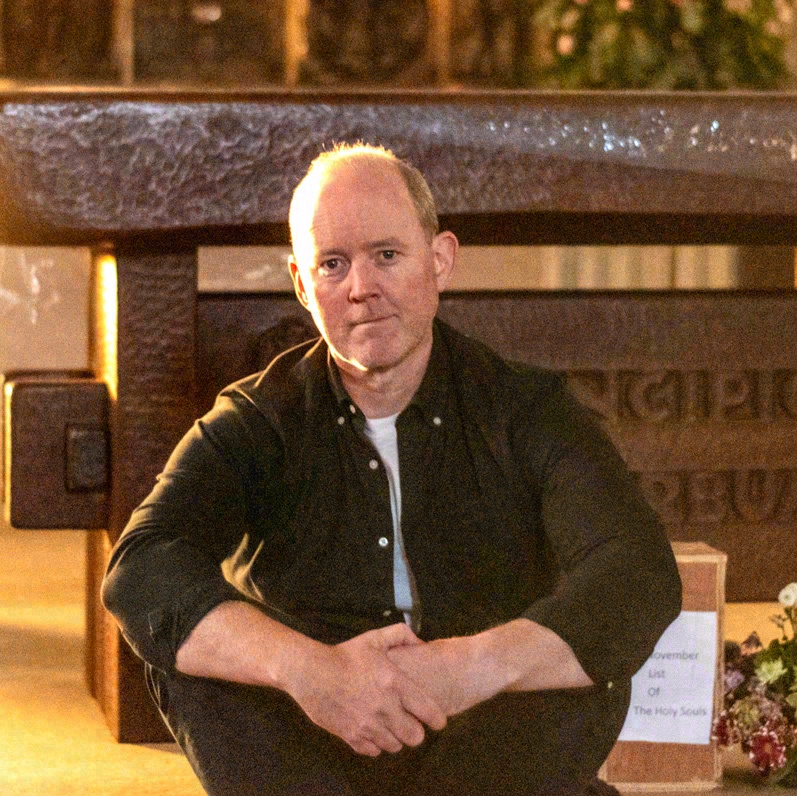More Than a Voice: The Compassionate Work of a Funeral Singer
In this deeply personal piece, Darran Bourke — a Tipperary-based funeral singer — reflects on the emotional and spiritual role music plays in helping families navigate grief. Drawing from his own experiences and faith, Darran shares how singing at funerals is far more than a performance; it’s an act of compassion, connection, and care.
The Practical and the Personal
Some people, I feel, look at what I do as being very practical: I turn up, I sing the hymns, I pack up, and I leave. And they’re not entirely wrong. But I would argue there’s also a very spiritual and compassionate side to it. If I only looked at a funeral from a practical standpoint, I wouldn’t be very good at my job. If I can’t put any feeling into what I’m singing, then who in their right mind would hire me?
Understanding Grief, One Family at a Time
There are a lot of elements to a funeral from a singer’s perspective, a lot of things we need to know, like the funeral mass and the running order of the service, and so on. To put a personal stamp on each funeral, it’s also essential to know something about the person who has passed, to get to know them a little, and to understand their family.
No Two Losses Are the Same
You see, everybody is different. Everybody’s grief is different, and grief varies in so many ways; it all depends on the circumstances of a loved one’s passing. For example, sudden death, a tragic ending, a long illness, or an elderly person who’s lived a full life, all of these hurt differently. And then each individual suffers differently. If a man dies leaving behind a wife and children, it’s an entirely different loss for his wife than it is for his children. The only thing that unites them all is that, no matter the age or the circumstance of death, the loss is always big.
Bringing Empathy to the Conversation
And I think everybody should know that. Everyone should know and understand what a person is most likely to be going through in times of loss. Most of us have been there. For me, as a funeral singer who has also experienced many personal losses, both among friends and family, it has definitely helped me become more understanding and empathetic towards the families I meet during their time of loss. Because I’ve experienced my own loss, I have a sense of theirs.
It’s given me the understanding that I must make the conversation I’m about to have with a family as stress-free and as gentle as I possibly can. I try to give them the basic information, like the format of the mass and where hymns and songs can be placed, and to find out all I can about the person, which might help me suggest hymns and songs to the family.
Listening and Responding in the Moment
There are often times when a family is happy to just trust my judgement when it comes to choosing the hymns and songs. Because of this, I always listen to the words of the priest and his perspective, and I listen to the eulogy, as it might often lead me to change direction when it comes to choosing hymns or coming up with appropriate song ideas.
Then, on the day of the funeral, it’s just about being there in the moment, giving everything of myself to that soul and to the family who mourn.
Faith, Compassion, and the Power of Song
I have a deep faith in my Christian beliefs, so for me personally, when it comes to singing at a funeral, I’m singing to praise God and to pray for the soul who lies before Him in song, so that they may enter His Heavenly Kingdom. I’m also singing in prayer to give comfort and strength to the family who mourns.
I have also sung at a handful of secular funerals—though I don’t get that many—but while the format is different, the empathy and the compassion are the very same. Because again, while I can’t possibly comprehend an individual’s grief, I can understand what they’re going through.
A Lasting Gift
I think it was Saint Augustine who said, “He who sings, prays twice.”
I believe that it’s one of the most important jobs a singer will ever have the honour of doing: singing for a soul and giving a family some level of solace in their time of need. And while there is a practical end to singing for a funeral, the emotional and spiritual end live on in the hearts of those in mourning.
Memorial Gift Shop
View AllPressed Flowers with Verse / Photo
Hand-pressed wild Irish flower wall-hanging with verse/photo. Suitable for framing.
Angel Ornaments & Keepsake Boxes
Hand-crafted Angel pieces that capture those sentiments that we most want to express.
Mounted Prints
Mounted original design prints, inspired by the early Irish Celtic illuminated manuscript, The Book of Kells.


